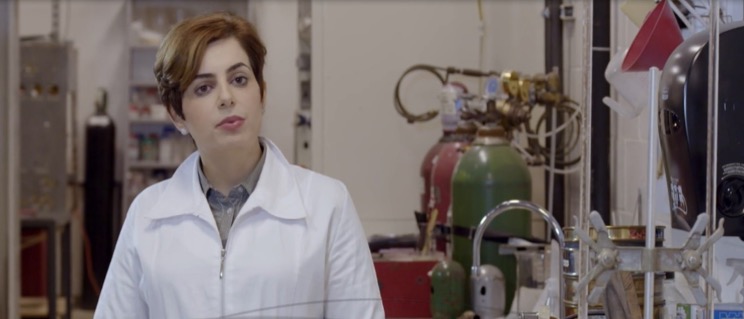
Strategies for success: bravery and advancing women in the forest sector
March 19, 2021
By Gordon Murray, WPAC
 Fahimeh Yazdan Panah, Ph.D., director of research and technical development for the Wood Pellet Association of Canada.
Fahimeh Yazdan Panah, Ph.D., director of research and technical development for the Wood Pellet Association of Canada. According to a 2016 labour force study, women represented just 17 per cent of the forestry labour force. Today, that representation is gradually increasing as key industry players lead the change on gender equity, dismantle the barriers that prevent or discourage women from entering the industry, and facilitate conversations.
A recent panel discussion hosted by Canadian Forest Industries, Pulp & Paper Canada and Canadian Biomass explored the topic of advancing women in forestry, looking at strategies for success. Forest sector leaders from across the country shared their lived experiences and examined topics such as mentorship, advancement and creating more visibility for women in the sector.
In the pellet industry, Fahimeh Yazdan Panah, Ph.D., director of research and technical development for the Wood Pellet Association of Canada (WPAC), stands tall, not only as a representative for women in STEM (Science, Technology, Engineering and Math), but as a pioneer of safety and innovation for bioenergy in Canada.
Fahimeh advocates for growing the participation of women in the forest sector from the forest to the plant floor to the laboratories and through to the boardroom. She believes it starts with addressing both conscious and unconscious bias in in the hiring process.
“Mostly, women are hired based on what they have achieved already but not based on their potential. For men, though, they are often hired based on what they can achieve and their potential,” Fahimeh said.
“Conversely, women will only apply for a job if they have all 100 per cent of qualifications, but men will apply even if they meet only 60 per cent of the listed qualifications,” she added. “Sometimes, it might be women themselves not putting themselves forward, but we all need to be brave, sit at the table, raise a hand and ask questions.”
Fahimeh is no stranger to being the only woman at the table. She achieved an undergrad in chemical engineering at Tehran Polytechnic University with a specialty in petroleum engineering. Attune to the global conversation on climate change, she sought out to find Masters’ programs related to renewable, clean energy and, in 2007, she joined the Biomass Bioenergy Research Group at the University of British Columbia.
She credits a supportive work culture that provided flexible working hours as the platform for ensuring her continual involvement in a number of committees where her voice can be heard and where she could make a meaningful contribution to shape the industry’s future and ingenuity.
In the pellet industry, Fahimeh and her colleagues are working to expand the world’s knowledge of renewable resources to include pellets as a viable industrial alternative and solution to climate change. It is that same enthusiastic spirit driving transformation in the energy sector that will ensure fair and equitable participation across the forest sector. Fahimeh, a champion for both bioenergy and women’s advancement in the sector, is encouraged that we can all play a part.
“How we deal with unconscious and unconscious bias requires bravery and support along the way from bosses, peers and the community,” she said. “The same has been true in the journey in my work and life, and I do see that these challenges exist and it will require everyone pulling in the same direction to effect change.”
And as Fahimeh pointed out, “we need to raise our daughters to brave,” – something she has already initiated in her own home. She’s currently reading Good Night Stories for Rebel Girls: 100 Tales of Extraordinary Women to her six year-old daughter.
I couldn’t agree more with Fahimeh; regardless of gender, we all have a role in advancing women in our sector and supporting their bravery every step of the way.
Print this page